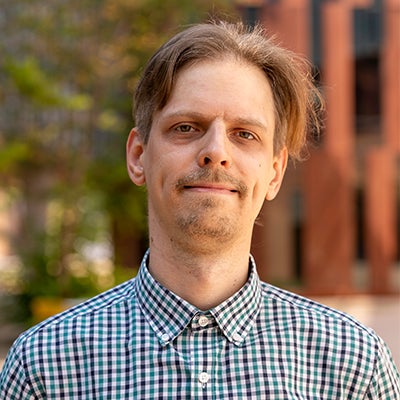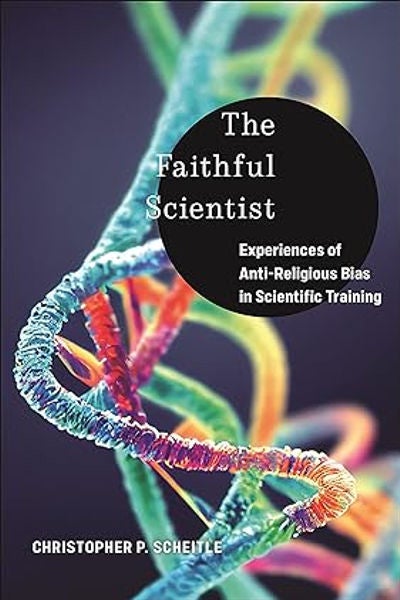Reviewed by Stanislav Panin, Department of Religion

Faithful Scientist: Experiences of Anti-Religious Bias in Scientific Training, by Christopher P. Scheitle is based on the author’s study of the experiences of graduate students in social and natural sciences at top research universities in the US. While other similar studies have mostly focused on more established scientists, Scheitle is particularly interested in scientists in formation. By combining his data with results of other studies, the author seeks to analyze tensions between science and religion in North American academia.
The book can be of interest for a wide spectrum of readers but would especially benefit educators and college administrators. The book is well-written and provides sufficient background, making the book accessible for those new to the topic. At the same time, it does not shun going into details of research performed by the author and therefore it will be useful for other researchers working on similar topics.
The author states at the very beginning that he is interested not in the theological or philosophical debates concerning science and religion but rather in how belonging to religious and scientific communities create tensions in people’s lives. His thesis is that while religious and scientific claims about reality can be negotiated relatively easily and oftentimes are simply inconsequential, negotiating different identities and values is much harder and often creates tensions for religious scientists (loc. 489).

Overall, the book does a great job outlining practical issues that religious graduate students face on campus and showing that even seemingly theoretical questions about religion are informed by identities, communities, and day-to-day experiences. It also provides a great overview of other research on the subject and makes a strong case for the importance of religion in the experience of graduate students and in administration of graduate programs.
The book provides valuable insights on the population studied through interviews and quantitative data. In the final section of the book the author implies that tensions between science and religion emerges primarily due to an academic culture in the sciences that is hostile to religion and that changing this culture is the main way to resolve these tensions. Yet, since the book mostly focuses on the experiences of one side, that of religious students, it is hard to build an objective and comprehensive picture of how the tensions between religion and science on campus arose and continue to persist. While this emphasis makes sense given the scope of the author's research, one could argue that converting this research into policies would require a more holistic view that would give more voice to non-religious scholars and students
From the perspective of the goals of the Boniuk Institute, the importance of this book stems from the fact that it explores subtle ways in which religious discrimination works within science programs in prestigious universities and suggests some ways of decreasing the pressure on religious students, hopefully leading to better academic performance and better mental health. It makes a strong argument for the importance of religious tolerance in academia by pointing out the potential that religious people have in advancing sciences as long as universities are willing to create environments welcoming for religious students and faculty.
Scheitle, Christopher P. Faithful Scientists: Experiences of Anti-Religious Bias in Scientific Training. New York, NY: NYU Press, 2023

